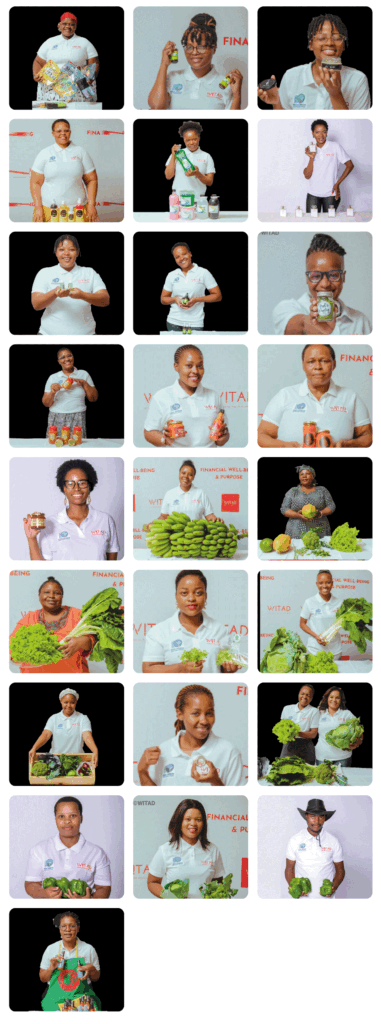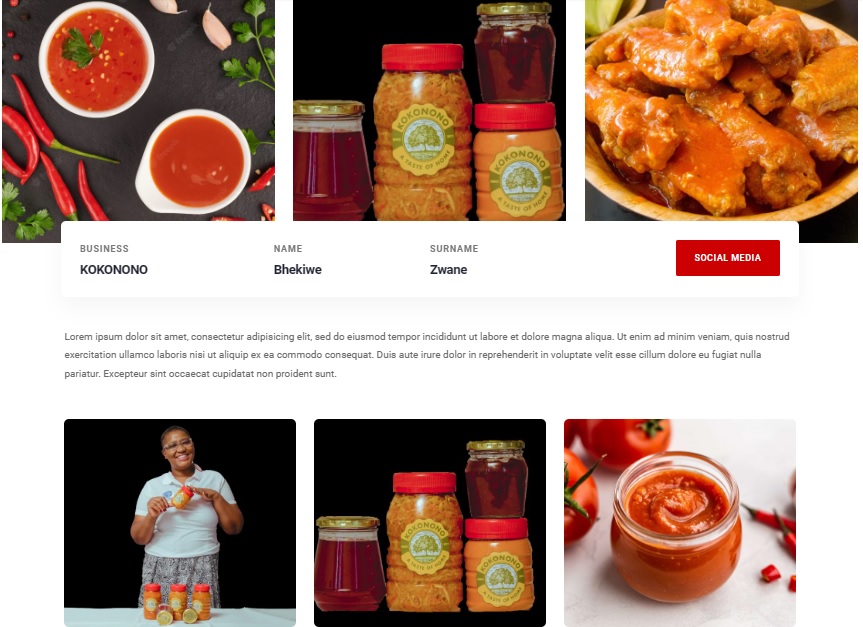
By Phephile Motau
A total of 45 small and medium enterprises (SMEs) and 203 farmers throughout the country have been empowered to get their products ready for international markets.
The businesspeople were capacitated through the Trade Forward Southern Africa (TFSA) programme which sets out to enhance the participation of SMEs in regional and global value chains in high-potential sectors.
TFSA is a United Kingdom Government funded initiative that supports the Southern African Customs Union (SACU) and Mozambique business community to grow regional and international export trade through a diverse range of free exporter-focused tools, training, and resources designed to provide a broad overview of important trade and customs related subjects.
According to a report titled ‘Trade Forward Southern Africa Sector Work in Eswatini’, working through implementing partners and business support organisations (BSOs) in Eswatini, TFSA has delivered sector-specific interventions designed to address Non-Tariff Barriers (NTBs) and facilitate compliance with regulatory and standards requirements, as well as the less tangible barriers related to distance to market.
Training
The training took place between November 2021-November 2022. Through this sector-specific training, and business and product development support, TFSA has helped empower BSOs and SMEs throughout Eswatini to improve business operations, and product output and quality to meet international standards and regulations.

According to the report, for many, this means having the increased ability to demand higher prices, and a business and products ready for international markets. The priority sectors in Eswatini were Condiments and High-Value Specialty Foods and Fruits, nuts, and vegetables. The report states that the condiments and high-value speciality foods sector is dominated by a few large exporters, with a growing number of SMEs becoming export ready. The report further state that the sectors are interconnected as the government’s fruit tree planting campaign and donor support improve SME capacity and the availability of fruits for processing and preservation.
TFSA offered support to the condiments and high-value speciality foods sector as the increase in global demand for sauces and condiments presents great opportunities for SMEs in Eswatini to tap into this growing market, whether through supplying to larger established exporters or exporting their products directly.
The organisation said in both scenarios, compliance with international standards such as Global Good Agricultural Practices (GGAP) is a key barrier for most SMEs.
International Requirements
It was reported that working through business support partners, Fair & Square and Women in Trade and Development (WITAD), TFSA designed a range of activities to equip SMEs in the sector, most of them women-owned, to help growers and manufacturers of processed goods put in place systems and protocols to meet international requirements.
The businesses were trained on food safety-related regulations and standards requirements, namely GGAP, Global Hazard Analysis and Critical Control Points (HACCP) principles, ISO 9001 Quality Management Systems, and Food Safety Systems Certification (FSSC) 22000 to equip SMEs with the knowledge to comply with the necessary international food safety standards, including product labelling, packaging, and nutritional content requirements.
Read More: E7.3 billion to be unlocked to support African companies
They were also trained on building operational readiness through post-training production site visits to support the implementation of training topics, including gaps assessment and action plan to complete preparation for audits and certification.
The programme also strengthened technical support by government agencies through the delivery of refresher training, including updates on recent changes to the Ministry of Health staff responsible for conducting hygiene and safety inspections and checking for HACCP compliance. Subsequently, health inspectors – at their own request – briefed the SMEs in preparation for inspection visits.
Readiness
The businesses were also empowered on building exporter and marketing readiness through the development of a customs and legislation handbook for export-ready firms, a marketing brochure featuring individual company profiles to promote their products to Fair & Square’s network of regional and US retailers, and beyond.
They were also assisted with marketing and linkage to international buyers through the development of an online portfolio directory, networking events for the SMEs to meet and learn from successful entrepreneurs, and facilitation of virtual buyer engagements for selected export-ready SMEs.
In the fruits, nuts, and vegetables sector, it was reported that Eswatini has a relatively high number of big-scale farms, mostly operating in the citrus sub-sector which is enjoying significant institutional investment. Following the 2020 launch of the government’s tree planting campaign that seeks to plant 10 million trees by 2025, new growers, mostly smallholder farmers, are emerging.
It was further reported that the sector is also seeing growing diversification, with an increased focus on migrating to high-value crops such as macadamia and blueberries, and it is benefitting from donor investments into nationwide cold storage infrastructure.
Support Partners
The report states that to ensure these farmers – and SMEs selling processed and packaged goods – can participate in global trade, it is vital that requirements such as traceability are ensured for the entire supply chain, and that product is of an acceptable standard for value-added products to be exported.
Read More: Building youth entrepreneurship in Eswatini
In this context, TFSA and business support partners, the National Agricultural Marketing Board (NAMBoard) and WITAD have delivered activities to improve the export readiness of individual small-scale farmers, farmers’ groups, commercial farmers, and SMEs operating in the sector.

The report states that training on Local and Global (GAP) was based on farm assessments on exposure to GGAP and designed according to the different farmer categories and technical levels. Training delivered increased the knowledge of Local and Global GAP and the understanding of the associated market compliance requirements.
It was reported that to further support GGAP implementation, NAMBoard has engaged with a certification body to design a certification model to support compliance through its recently initiated out grower programme.
The organisation also assisted with support capacities of NAMBoard extension officers to effectively conduct assessments of farm-level compliance with GGAP requirements, and to provide ongoing mentorship and technical assistance to farmers in their implementation of Local and Global GAP.
Extension officers were also equipped with GGAP handbooks and assessment frameworks to use as guides in their ongoing mentoring and during assurance and audit assessments.
Financial Cost
The farmers were trained in agribusiness, finance, and marketing to equip farmers with a complementary skillset to enhance their capacity to comply with GAP requirements and consequently be able to access markets. This particularly responded to the financial cost burden associated with meeting the standard’s requirements.
Read More: E20 million set aside to finance youth SMEs
The programme also included building export readiness of SMEs producing packaged or processed goods through training on food safety-related regulations and standards requirements, including HACCP principles, GGAP, ISO 9001 Quality Management Systems, and FSSC 22000.
Information on sector-specific labelling and packaging requirements was also provided, and post-training site visits were conducted to ensure the correct implementation of training topics.
The farmers were also empowered through building marketing readiness and enhancing SME visibility through the development of individual company profiles for inclusion in the online directory hosted on WITAD’s website, and participation in a networking event for the SMEs to meet and learn from successful entrepreneurs.
What some of the participants said:
Bhekiwe Zwane, CEO, Kokonono
“Being part of this training was such an eye-opener. We were equipped to ready our products for export from baby steps to giant leaps. Lots to learn. Lots to do. Thank you to Trade Forward Southern Africa and WITAD for being our enablers.”
Julie Nixon, Eswatini Country Director, Fair & Square
“We couldn’t do any of this without TFSA. As a business support organisation, we’re building our capacity, we’re learning and that is so important. I have been learning about the processes, and understanding more about food hygiene and safety and regulations, and that is helping me to have a better understanding of how to help someone else to get their export somewhere, which is fantastic. For our entrepreneurs, if you look at the pre and post-training surveys we did, the ratings are fabulous, they’re really, really good! People are learning and comprehending, and it’s making a difference.”





